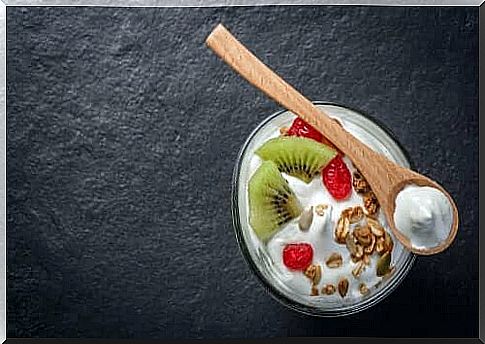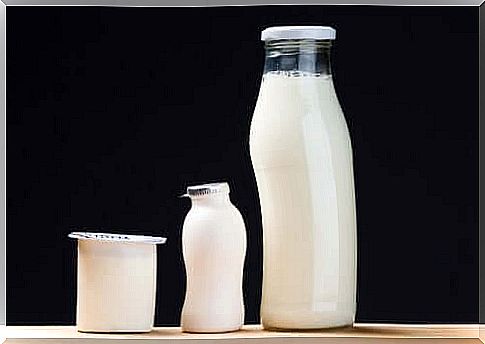Functional Foods For Kids

Functional foods are foods that, regardless of their nutritional value, have a beneficial effect on our health, improving or reducing the risk of disease. There are functional foods for the infant population. Find out what functional foods are for children and the effects they have.
What are functional foods for children?
A functional food can be:
- A natural food
- One to which a component has been added or removed through some technology or biotechnology.
- When the nature of one or more components has changed.
- The bioavailability of one or more of its components has been modified.
- Any possible combination of the above items.
In this set of functional foods we find probiotics and prebiotics, which are the most used in child nutrition. Probiotics and prebiotics modify the intestinal flora so that beneficial effects can be obtained by the child.
There is also the combination of pro and prebiotics, which are symbiotics. All of them stimulate the selective growth of a limited number of bacteria in the colon.

probiotics
This group includes live microorganisms (bacteria and yeast) that have a positive effect on health. They are used in foods such as yogurt, other fermented dairy products or even fermented meat products.
The most commonly used microorganisms are lactic acid bacteria ( Lactobacillus, Streptococcus and Bifidobacterium ). The mechanisms by which they exert beneficial actions are:
- Improved balance of colonic microbiota and prevention of diarrhea caused by rotavirus in the baby.
- Competition with pathogenic microorganisms for receptors and binding sites.
- Production of cytokines (proteins capable of coordinating the immune system’s response).
- Greater response from secretory IgA.
Currently, there is great interest in demonstrating a relationship between probiotics and the following actions:
- Prevention and treatment of atopic eczema.
- Treatment of inflammatory bowel disease.
- The prevention of food allergy.
Yogurt
It is an excellent food to increase the supply of calcium and other nutrients, especially for babies and children with insufficient intake of formula or milk.
Yogurt is a type of fermented milk, acidified and coagulated through the action of L. bulgaricus and Str. Thermophilus. The addition of Lactobacillus casei or other lactobacilli to yogurt appears to increase the faecal proportion of lactobacilli so that beneficial effects could be obtained.
Infant formula supplemented with probiotics
On the market, there are different types of infant formulas that can be divided into those that have only added prebiotics, those that have prebiotics and probiotics, or those that have probiotics exclusively.
The statement from the European Society for Pediatric Gastroenterology Hepatology and Nutrition (ESPGHAN) approves the addition of probiotics to segment formulas , but not to starter formulas , as these are different species from the child’s own intestinal flora.
Therefore, due to the state of the newborn’s immune system, there can only be probiotics in segment formulas.

prebiotics
Another group of functional foods for children are prebiotics. Prebiotics are substances that are not digestible by humans and that, as part of food, can provide benefits by selectively stimulating the growth or activity of a group of intestinal bacteria.
Inulin and fructooligosaccharides (FOS) are industrially sourced from chicory, but are also present in wheat, onions, bananas, garlic and leeks. FOS play an important role in the development of the intestinal bacterial flora.
Its fermentation in the colon produces short-chain fatty acids, such as acetic, propionic and butyric:
- They are a source of energy for the colonocyte.
- Improve the bioavailability of calcium, magnesium, zinc and iron.
Infant formula supplemented with prebiotics
Breast milk contains a high amount of galactooligosaccharides (GOS) complexes that act as natural prebiotics, promoting the development of bifidobacteria. Therefore, there are infant formulas with prebiotics to mimic the composition of breast milk.
Formulas with FOS and GOS favor the growth of the child’s own bifidobacteria and lactobacilli, both in the upper part of the colon and in the lower part. As the development of flora is characteristic of each child, they can be included both in the starting formulas, as well as in the segment and growth formulas.









